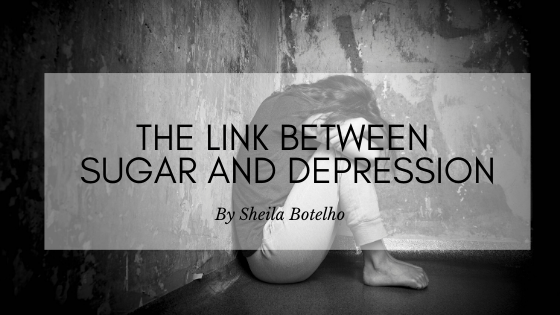The not-so-sweet truth about sugar
I read an article about this recently and was taken aback. In a new study* including 87,000 women published in the American Journal of Clinical Nutrition, depression in postmenopausal women was shown to be linked to an increased consumption of high glycemic index foods, like those found in processed, sugary foods, drinks, and refined grains.
It went on to predict that depression will be the second-leading cause of burden on society among all diseases by the year 2020.
How is this possible?
With global consumption of refined high glycemic index (GI) foods on the rise, it’s no surprise that illness and obesity is so rampant. The food we eat, whether whole or refined, interacts with our bodies at the cellular level. For better or for worse.
While the study may have targeted postmenopausal women, it leaves me wondering what the effects of high GI foods have on the diverse cultures in North America and abroad.
What is a Food Desert?
In what should be the most abundant food source in the world, access to healthy food is limited for many underserved communities in North America. A Fact Sheet*** put together by the Alliance To End Hunger shared what that looks like in practical terms:
- 24% of African Americans do not own cars, making grocery shopping more time-consuming.
- 21% of households of color experience hunger at rates of up to 21.5% (vs. 10% of white households).
- Schools with majority African American and Latino students are less able to provide fresh fruit and low-fat milk options than majority white schools.
- Low proximity to supermarkets correlates with high rates of obesity, diabetes, and diet-related diseases.
- Food stores in communities of color are often further away and have fewer healthy high quality options (food deserts).
- 50% of schools with majority students of color are half as likely to adopt and enforce health standards on vendor foods (vs. majority white schools).
Eating high quality, nutritious food may seem easy for many of us, but as you can see, there’s more to the story. Educating ourselves is the beginning, with raising awareness of and donating to our local schools and community organizations a next step.
Watch Marketing Messages
Years ago, my kids each wanted to have a sports drink at their soccer games instead of water. Thinking of it as a treat, we figured they would run through the sugar during the game anyway.
As I looked at the label, I was stunned to see that one bottle of a brand-name sports drink has 40 grams of sugar! And this wasn’t the organic cane sugar I like to bake with – or even table sugar. It was sugar/glucose-fructose. But, it had B-vitamins added to trick moms like me into feeling better about giving it to our kids.
But I don’t eat added sugar…
Take an inventory of the foods in your fridge and cupboards. You may be surprised. High fructose corn syrup is found in many processed foods, soft drinks, and even so-called “healthy snacks.”
Add to that the high volume of refined grains that we eat even in a few slices of bread, and the grams of sugar add up. Huge.
How much is too much sugar?
The Journal of the American Heart Association** and the Canadian Heart & Stroke Foundation both suggest that most men and women should consume no more than 6-9 teaspoons or approximately 40 grams of sugar a day. Children ages 4-8 should consume no more than 3 teaspoons a day. Pre-teen and teenagers should limit sugar to 5-8 teaspoons a day.
Sugar has been shown to weaken the immune system. With the average North American ingesting triple the amount of these numbers, it’s easy to see why obesity, chronic illness, and depression are such epidemics.
So does this mean we need to cut out sugar and grains completely?
Thank goodness, no! Fortunately, there are so many available alternatives that are wonderful substitutes for refined sugars and grains that actually pack a nutritional punch.
Try my Chia Banana Spelt Loaf, which has become a snacking staple in my house.
Making healthy choices for you and your family doesn’t have to be a difficult task. I’m happy to share what I’m learning on my family’s wellness journey. We’re in this together!
Get the help you need.
If you find yourself battling depression as so many do, please make it a priority to seek help from a trusted mental health professional. Also, look to your diet and lifestyle habits. There may be some changes you can make to positively impact your overall health.
Tell Me:
Do you find it difficult to avoid added sugar and refined grains in your daily meals and snacks? How will you get involved in helping underserved communities gain access to the healthiest food available? Please share in the comments below and I’ll offer some insights in future blog posts.
Blessings,
Sheila
Want to up your self-care practice and support your best hormonal health at every stage? Subscribe here to cut through healthy living overwhelm and start thriving.
*James E Gangwisch et al. High glycemic index diet as a risk factor for depression: analyses from the Women’s Health Initiative. Am J Clin Nutr doi: 10.3945/ajcn.114.103846.
**August 2009 issue of Circulation: Journal of the American Heart Association
*** Alliance To End Hunger Fact Sheet 2017 https://alliancetoendhunger.org

